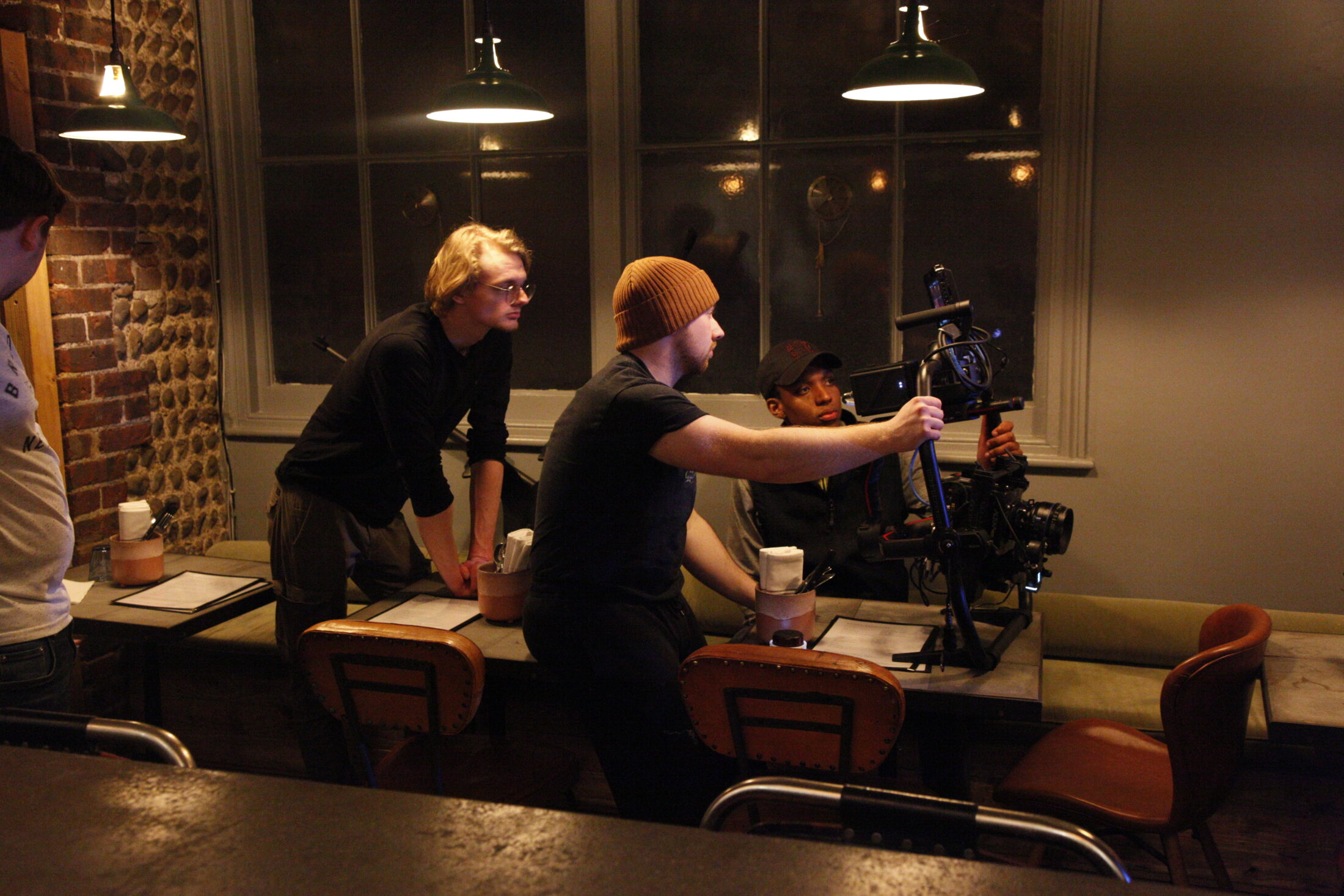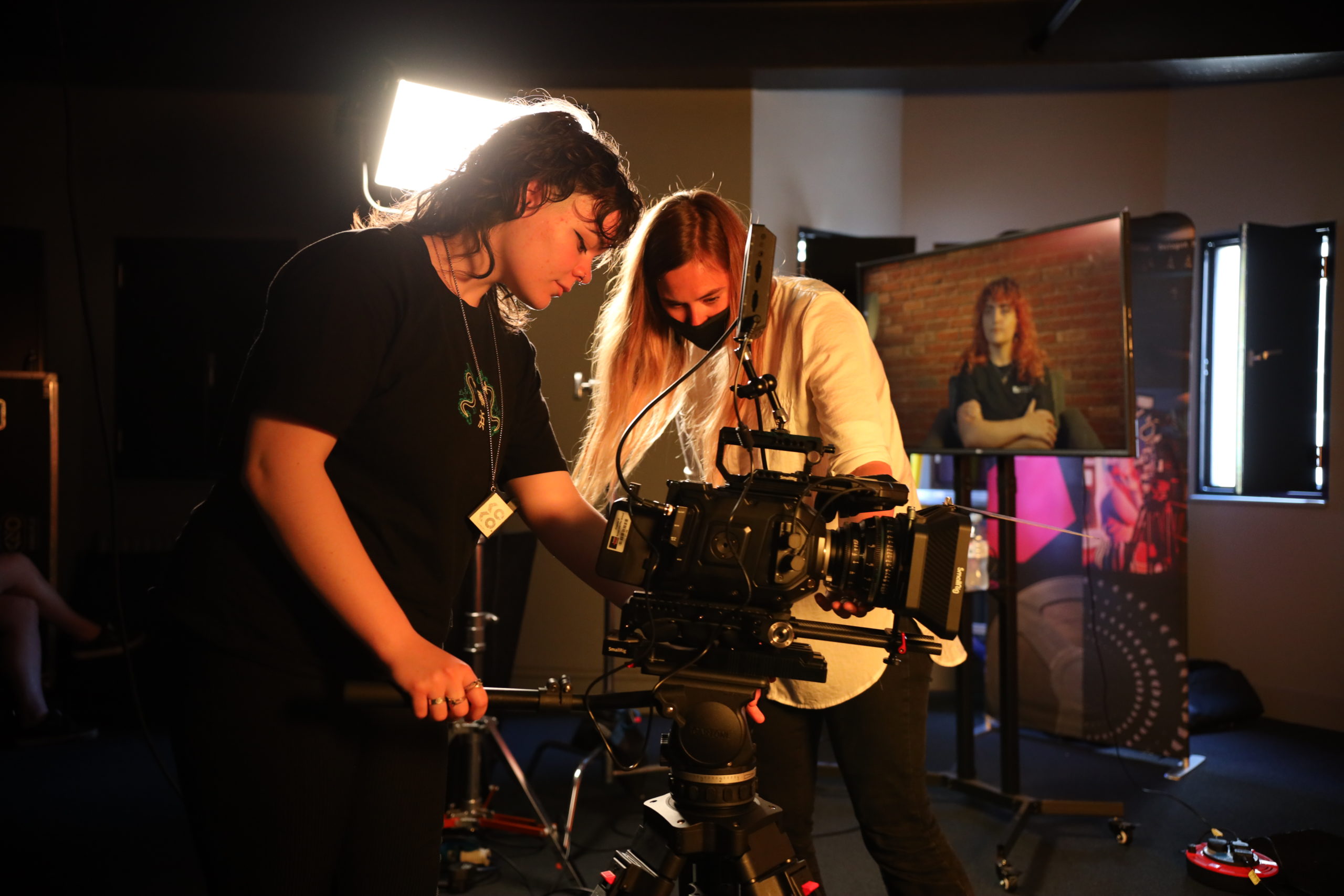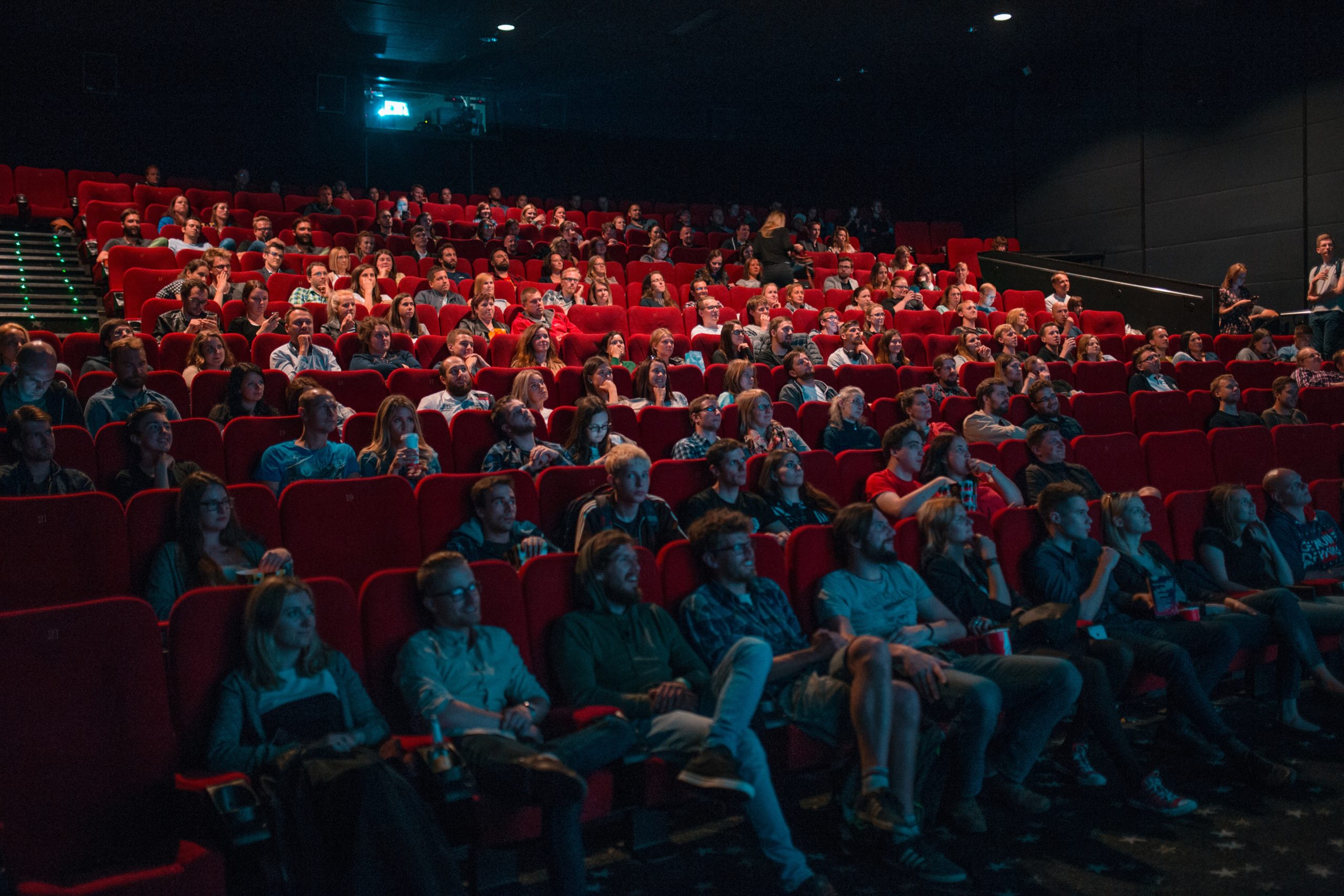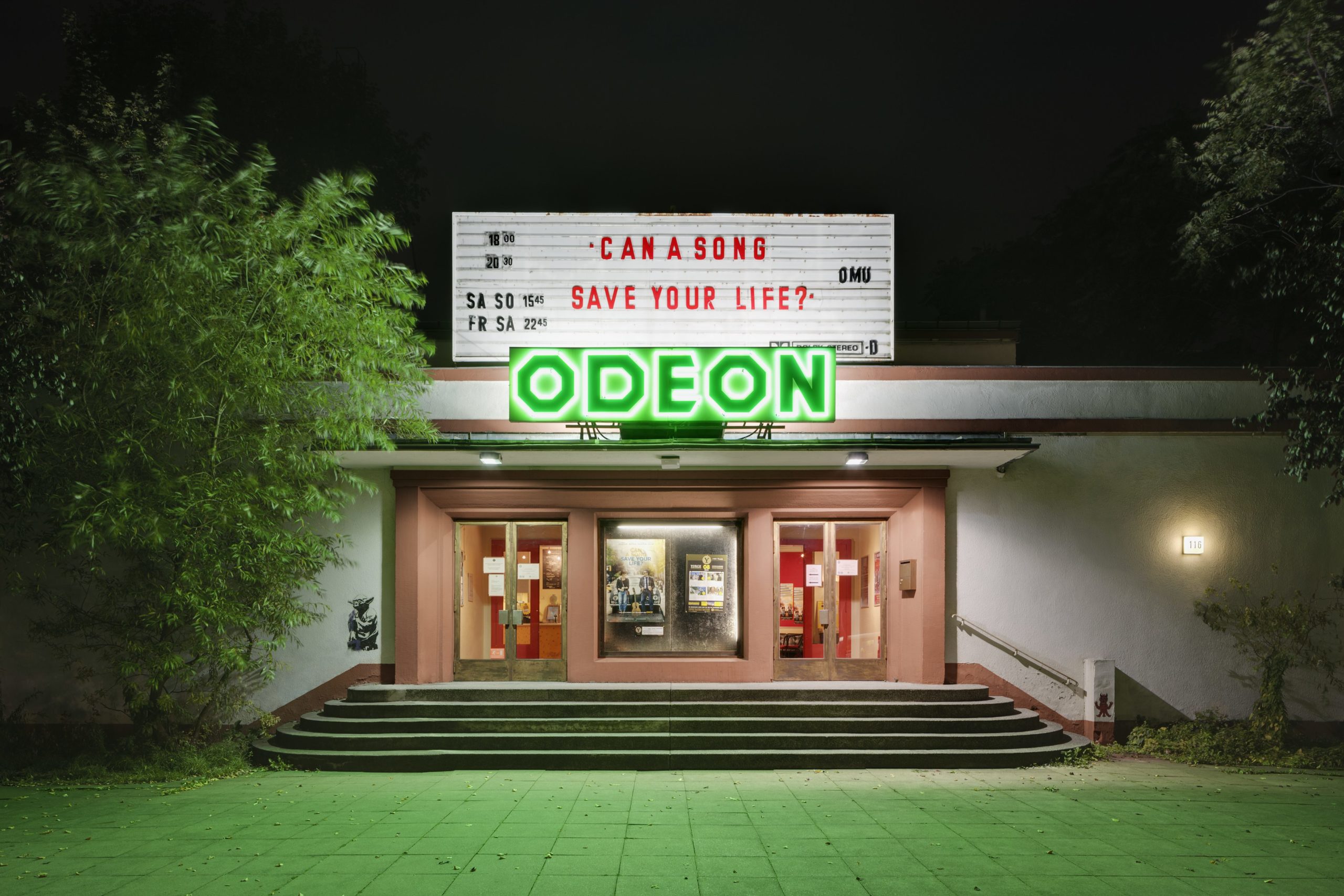Welcome back to Make a Scene, a series in which we delve into the filmmaking minds of some of our students to hear more about their passion for their specialisms, their Film School experience, and pick their brains for the best advice for future applicants.
This time, we caught up with BA (Hons) Filmmaking student and screenwriter Zac, to discuss his experience at Screen and Film School Brighton so far.
What sparked your initial interest in film?
Watching Edgar Wright’s Baby Driver was what sparked my interest in filmmaking. It was the first film I’d seen where I felt every aspect of production, from sound to costume, was being used to its full potential and that really struck me.

Why did you decide to study at Screen and Film School?
What Screen and Film School offered that other universities didn’t was a practical-based film course. We work with high-level, industry-standard equipment, and students are encouraged to actively make films, not just study them.
What is your favourite part of studying your specialism?
My favourite part of screenwriting has been learning and embracing the tried and tested methods. Before specialising, I was someone who thought writing had no rules and, in a way, it doesn’t. But you’d be wasting your time not to take advantage of what other people have found works! Screenwriting has taught me these methods and my writing has really improved because of it.
Read more from Zac: The best thing you get from film school
What have been some of your greatest moments as a filmmaker?
It’s usually when it all comes together. Whether you’re the writer, the director, DOP, or gaffer, that moment when the shared vision is realised and you’re watching it on the monitor is fantastic. It doesn’t happen nearly as often as you’d like it to, of course, but that just means the feeling’s even better when it eventually does.
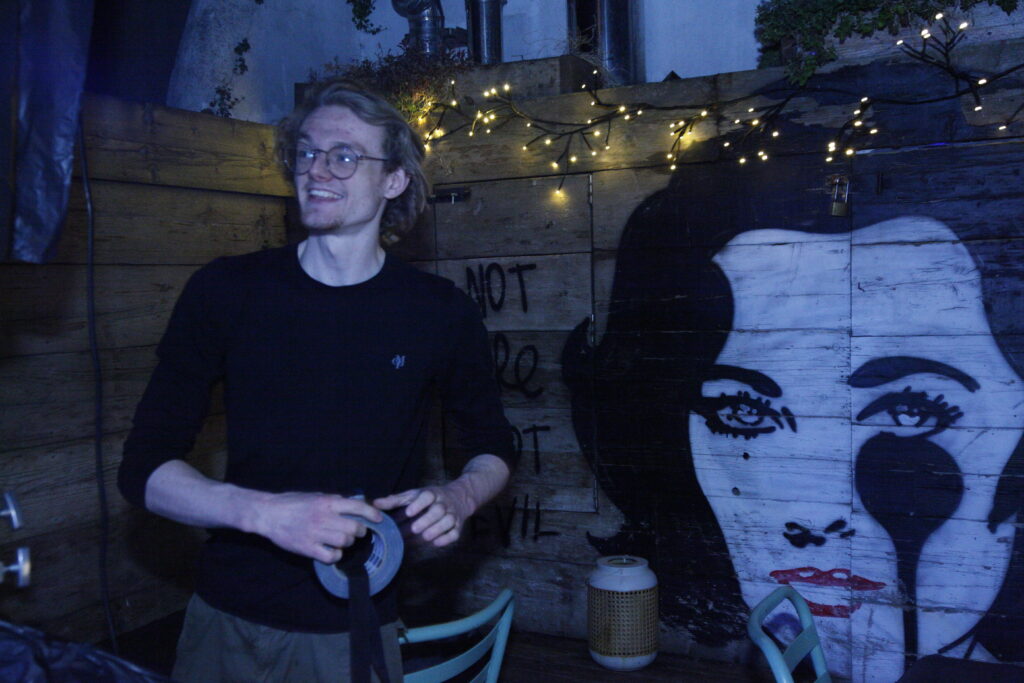
What has been your highlight of studying at Screen and Film School so far?
Seeing the results is always a highlight. You spend good couple of months making the short films and so many people put so much hard work into it, so getting to see the final product is always a great feeling. Especially when you’re able to compare that work to the work you did a year or so ago and literally see how you have progressed in your field.
With filmmaking, you face near constant challenges; it’s up to you to find ways to overcome them.
Have you had to overcome any challenges?
If I hadn’t, I’m not sure I’d still be making films. With filmmaking, you face near constant challenges; it’s up to you to find ways to overcome them. It could be inexperience, location problems, kit issues, or any other number of things you’d never expect to be a problem. If you want to make films though, you push through it with the crew.
Read more from Zac: Making the most of your time at film school
What was the best piece of advice you received as a filmmaker?
It’s advice that applies to filmmakers just as much as it does any artist or creator: ‘Make things and finish them’.
If you’re anything like me then you have a pile of unfinished screenplays in your files and an even bigger pile of unacted-upon ideas in your head (I am still working on taking this advice!). Making is the first big step; you have to be ready for it all to go wrong and it to be the end of the world, only to realise that it didn’t actually turn out too bad. But finishing your ideas, bringing them to fruition, is the second (crucial) step. No one wants to read the first three pages of your undoubtedly brilliant idea if there’s nothing else after. Start something, finish it, then start something else.

How collaborative has the course been in terms of working with your fellow students?
The course is incredibly collaborative. At the end of the day, the course is meant to prepare you for the industry. If it wasn’t collaborative, you wouldn’t be ready at all!
In lessons, we are almost always in groups and encouraged to work with people we haven’t worked with before, but are equally encouraged to develop great relationships with people we work well with. It might sound scary, coming to a new uni in, possibly, a new city and being thrown into group work, but you’ll find your people pretty quickly.
From a sample size of 1,000 Hollywood films, there were on average 588 people listed in the credits (data from Stephen Follows). That’s almost four times the amount of people in my year, 42 more people than all the players in the Premier League, and less than 100 people away from the number of MPs in the House of Commons. So, you could say that it’s (almost) as hard to make a film as it is to run a country! Filmmaking is an art form that requires input from a variety of departments, all with multiple people working for them. If you’re not collaborating effectively, you’re instantly at a disadvantage.
Where do you see yourself professionally in the near future?
In the near future, I hope to have a writing agent and be taking steps towards selling scripts. Maybe going for BFI funding for a short and trying to keep making as much as possible. Oh, and hopefully I’ll be better at finishing things, too.
What advice can you give applicants as they approach the beginning of their Screen and Film School journey?
Dive in. Don’t waste time putting a toe in and checking the temperature; if you’re going to do it – do it. That’s how you’re going to make the most out of the experience. You will be in rooms full of people who, just like you, want to make films, so make them! Fail gloriously, laugh about it, learn from it, and do it again.
